
The Business of Fashion
Agenda-setting intelligence, analysis and advice for the global fashion community.

Agenda-setting intelligence, analysis and advice for the global fashion community.
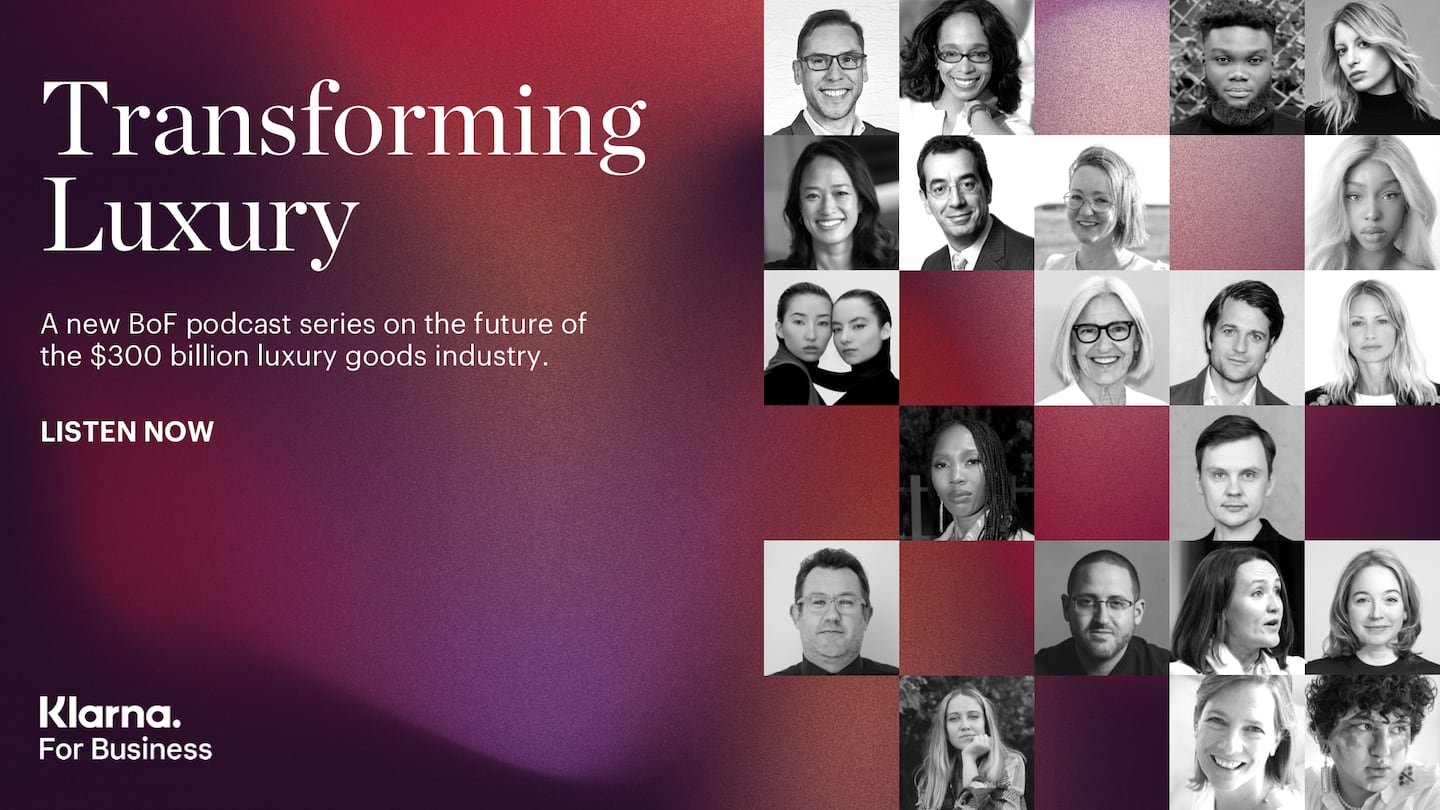
Follow the series to ensure you never miss an episode.
BoF is investigating how market disruption, new technology and increasing consumer scrutiny are driving transformative change in the $300 billion luxury goods market, in a new podcast series presented by Klarna.
Across the six-part series, BoF interviews 22 global authorities to discover what really drives success in the luxury market today, how the definition of a luxury good is changing alongside the evolution of luxury customer service and shopping channels, as well as the next generation of technological innovations and the pressing need for systemic change to create a more sustainable industry.
From Pulitzer Prize-winning journalist and senior critic-at-large of The Washington Post, Robin Givhan, to Farfetch’s chief brand officer and Browns’ chair, Holli Rogers, creative technologist Ommy Akhe, circularity pioneer Eileen Fisher, and Fewocious, an 18-year-old digital artist who has generated $20 million from his art, BoF’s Robin Mellery-Pratt is joined by pioneering thinkers from the worlds of business, technology and luxury, as well as creative leaders, renowned ecologists and a host of other innovators.
Follow the series to ensure you never miss an episode and discover actionable insights into the opportunities and challenges a redefined industry will bring and how luxury’s transformation will impact your business.
Transforming Luxury: Expert Commentators

Robin Givhan is senior critic-at-large at The Washington Post, writing on race, politics and the arts. She was the first fashion writer to receive the Pulitzer Prize for Criticism in 2006. Givhan’s work has also appeared in New York Magazine and the New Yorker, among other publications. She is the author of “The Battle of Versailles: The Night American Fashion Stumbled into the Spotlight and Made History.”
“So much of luxury is about being perceived as part of the ‘in’ crowd. When that’s the way you run a business and the culture starts shifting around you — saying that everything should be open to everyone — then it runs contrary to your business practice.”
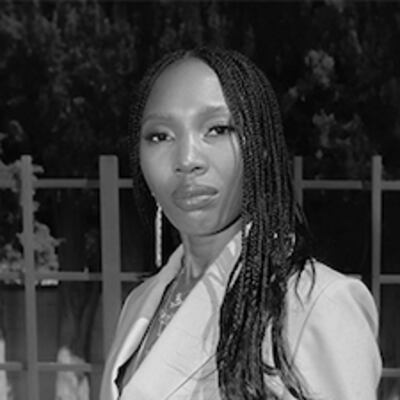
Zerina Akers is a fashion stylist and costume designer. She is the founder of the self-funded e-commerce site Black Owned Everything and has worked as Beyoncé's stylist, as well as costume designing the 2020 visual album, Black Is King, for which she won an Emmy in 2021.
“How many people have to see these things, like a commercial or an ad campaign? It has to go through so many different channels. If you don’t have the right people and the right representation in the room, of course you’re going to get caught out there. Or if you’re not listening to the voice.”
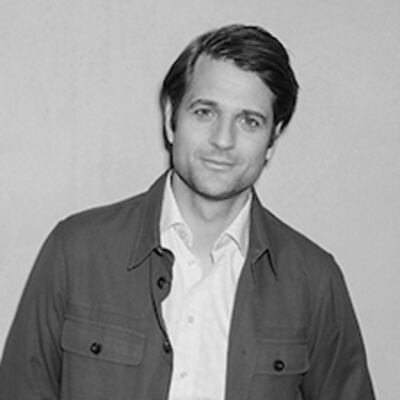
Sebastian Siemiatkowski is the CEO and co-founder of Klarna. In 15 years, Siemiatkowski has grown Klarna into one of Europe’s largest financial institutions, which provides alternative payment services to over 90 million shoppers, partnering with over 250,000 retailers globally and its own direct-to-consumer shopping app.
“The whole purpose of digitalisation is utilising data to create value. It’s the information that allows us to create richer experiences. If you sit down and have a [...] conversation with a consumer and you say, ‘[...] if you then would be willing to share some specific aspects of your data in order to get a better experience, a better price, a better whatever it might be,’ then the answer is always going to be yes.”

Luca Solca is an investment research analyst and managing director of luxury goods at Sanford C. Bernstein. Formerly a partner of the Boston Consulting Group, Solca has more than 25 years experience in luxury goods and is a regular BoF contributor.
“The number of fronts that luxury goods brands need to manage has continued to explode. You have brands that make more than €10 billion of revenue per year and invest mid-to-high single digits in communication. That creates a huge amount of fire power. Let’s not forget that these same brands also invest in supporting traffic to their stores.[...] It’s conducive, again, to scale-driven advantages.”
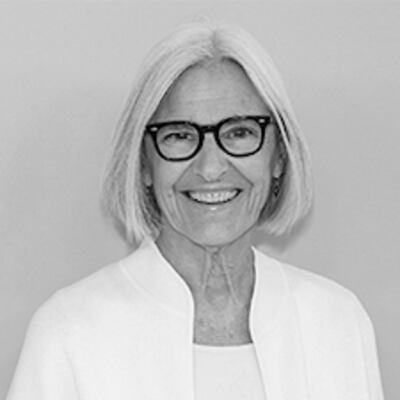
Eileen Fisher, founder and CEO of her eponymous brand, is a pioneer in sustainable fashion. A champion of slow fashion and circular supply chains, Fisher’s Renew programme is one of the brand’s most impactful sustainable initiatives, reusing materials and turning waste into the building blocks of new products.
“We’ve really stopped to look a lot at the waste in the system, the way we deliver product into the stores, how we create. We’re more committed to timeless design and not just in the clothes themselves, but in our business model: the way we deliver product into the stores, what products stays, how much new product is delivered monthly and how that relates to the product.”
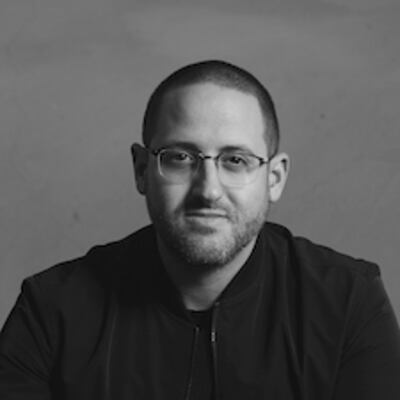
Aaron Levant is an entrepreneur working at the intersection of fashion, culture, events and media. Levant co-founded streetwear and music festival ComplexCon, and streetwear trade show Agenda Today, Levant is CEO of NTWRK, a mobile-first video shopping platform — backed by Drake and LeBron James — that hosts events and exclusive, limited-edition product drops available to purchase immediately within its app.
“Whether it’s a true luxury brand or a collectible or street culture brand, I think the masterfulness that you’re seeing mostly right now is around marketing and creating this perceived scarcity.”

Fewocious is the youngest artist ever to be featured by Christie’s — and the first to crash its site. He is one of the most successful and visible members of a growing community of crypto artists finding success in the NFT market, launching a shoe collaboration with design studio RTFKT earlier this year, with more than 600 pairs selling out in seven minutes and netting around $3.1 million.
“The NFT space was a great equaliser because it was so new that no one knew [anything]. There’s all these people from around the world and I had access to just DM them. I was seeing people who came from TV, fashion, working on special effects for movies.”

Dana Thomas is the author of “Fashionopolis: The Price of Fast Fashion and the Future of Clothes”, “Gods and Kings: The Rise and Fall of Alexander McQueen and John Galliano,” and the New York Times bestseller “Deluxe: How Luxury Lost Its Luster.” Thomas is an award-winning journalist covering fashion and culture.
“I don’t think it’s greenwashing. They actually believe what they say, but to do it is another thing. These companies [...] are afraid to make those long-term investments. It takes a lot of courage and you have to take it on the chin initially in order to make it pay off in the long term.”
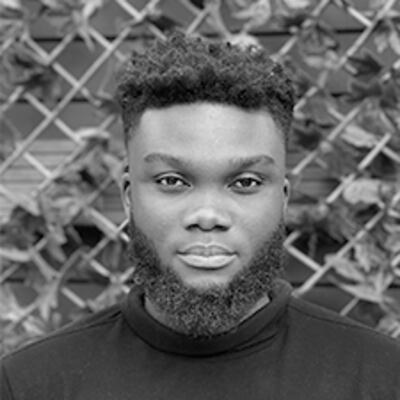
Timothy Armoo is the CEO of Fanbytes, which supports social media creators to navigate success, while also guiding brands to reach younger audiences on emerging and existing platforms. Selected for Forbes 30 under 30 in 2021, Armoo was named by The Evening Standard as one of the most influential people in marketing and advertising.
“When we advise our brands, the best way to go is, you say that you want to reach Gen-Z, but let’s go a layer down. Let’s go to a sub layer, and what niches — what core niches — are we actually trying to engage within that particular demographic? [...] Who exactly are we trying to engage?”

Daniela Ott is the General Secretary of the Aura Blockchain Consortium — the blockchain solution for luxury customer experience, and collaborative initiative between LVMH, Prada Group and Richemont. Ott has over 20 years of experience in luxury, working at Kering for over 13 years and as CEO of Tomas Maier during that time.
“I’m convinced that collaboration today is essential and, whether it’s tackling the pandemic or the global climate challenge, I think we will see collaboration really at the heart of business going forward. Our blockchain consortium was really born from that vision that collaboration can co-exist with competition and pursuit of a greater good.”

Bethany Williams is a UK-based menswear designer with a focus on affecting social change. She founded her namesake label in 2017 and won the Queen Elizabeth II Award in 2019 and the British Fashion Council and British Vogue Designer Fashion Fund in 2021.
“It’s very important to be speaking about issues and raising voices. But it’s really important to be actually doing tangible change-making through the supply chain and through the kind of projects that we engage with, whether that’s through funding or through creating product.”

Holli Rogers is chair of British fashion boutique Browns and chief brand officer of its parent company, Farfetch. Rogers quadrupled Browns’ business while CEO between 2015 and 2021. Previously, Rogers held roles at Chanel and Neiman Marcus before joining Net-a-Porter as a founding member in 2002.
“When you speak to different businesses everyone talks about, ‘yeah, I’ve got a clienteling app. We use WhatsApp.’ But actually if you break it down, none of them are connected one to the other. So you don’t get a single customer view. It’s this idea of how do you pull all of these pieces together in one space, collecting all of these hundreds of data points that allow you to give the customer what they want when they want.”

Ommy Akhe is one of the breakout stars of this first generation of AR. The creative technologist specialises in augmented reality, making experiential software and AR prototypes through tools such as Facebook’s Spark AR software. Previously working as an ethical hacker in information security, the London-based developer has now created dozens of filters for platforms such as Instagram Stories and Facebook.
“At the moment now, I think there’s very much a separation between your digital world and your physical world. But when it comes to the metaverse, it’s the seamless integration and the frictionless[ness] between the two that’s extremely important.”

Sergey Arkhangelskiy is the founder and CEO of Wanna, having previously worked as a lead engineer in Google’s search ranking team. Wanna has collaborated with the likes of Gucci, providing the technology behind their virtual try-ons and the creation of the brand’s first virtual sneakers.
“Digital fashion is for younger people, for Gen-Z, for millennials, for the people who are mobile, native or digital age. [...] As people spend more and more time socialising in digital spaces like games or social media, video calls, there will be the market for digital fashion. It’s not someone’s choice; it’s just how these things evolve.”

Alissa Aulbekova and Paula Sello are co-founders and creative directors behind Auroboros, the first digital collection shown in London Fashion Week’s DiscoveryLAB. They have recently partnered with fashion styling game Drest, collaborated with Burberry and seen up to 2 million people digitally interact with their Venus trap dress. Auroboros is a part of the Sarabande Foundation. Aulbekovas previously worked at Dazed magazine as a fashion stylist, while Sello held previous roles as an archive assistant at Chanel and at Vogue as a fashion stylist.
PS: We really are at the beginning of an entirely new movement and collectively understanding fashion and what it means to even have a body.”
AA: “We’re upgrading the traditional concept of ready-to-wear to digital ready-to-wear and allowing more people to participate, whether they are of a different body or shape, but also remote locations to a luxury experience.”

Iris Chan is a partner at Digital Luxury Group, which assists global clients with their digital presence and activities in the Mainland China market. Chan has over 12 years of marketing experience in agencies and consultancies in North America and Asia Pacific markets, specialising in luxury consumer behaviour and working closely with brands including Richemont and Ralph Lauren.
“Whether it be Weibo, Douyin, WeChat, TMall, Bilibili, any of these — and there’s still so many more beyond that — a lot of it is interconnected: cross-platform inter connections and redirections, so consumers can have a very unique experience and brands can take them on different types of journeys.”

Jerry Clode is the founder of The Solution Consultancy, which assists brands in navigating the Chinese market. The former head of digital and social insight at Shanghai’s Resonance, Clode launched The Solution Consultancy to help brands understand the consumer mindset and markets of Asian and emerging markets, specifically in China and rapidly expanding digital culture.
“Luxury consumption in China is inherently social. So, to have a relationship with a brand means knowing it to a level where I could confidently introduce it to my friends and to my wider group of contacts.”
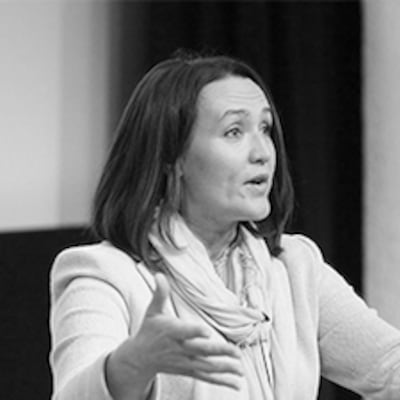
Gail Gallie is the co-founder of not-for-profit creative communications agency Project Everyone and founder of Project 17, which helps brands, businesses and the investment sector adhere to the United Nations’ Global Goals. Gallie was marketing director at the BBC for 10 years before co-founding Project Everyone — the initiative that launched the Sustainable Development Goals on behalf of the United Nations.
“If the fashion industry could stop trying to do less harm and really gear itself up to be nature-positive, then I think it would be a step change in positive impact, because fashion is fashion — other people would follow.”

Megan Meiklejohn is the senior vice president of supply chain innovation in the Land to Market Program for the Savory Institute. The non-profit focuses on accelerating the use of regeneratively grown materials, operating across six continents. Prior to her work at the Savory Institute, Meiklejohn helped cultivate Eileen Fisher’s sustainability practices and worked in product sustainability at Ralph Lauren.
“Rather than just designing products, we need to design the supply chains that we wish to see, because if we create a product and then try to look back and uncover that traceability, it’s oftentimes quite literally impossible.”

Melissa Morris is the founder and designer of Métier, an independent leather maison best known for its logo-free handbags, travel bags and accessories. Prior to launching Métier in 2017, Morris studied sculpture and business at Emory University before working for Armani, Helmut Lang and Belstaff.
“The pace of the industry is getting faster and faster. From my experience working in luxury brands, you’re constantly chasing from a development and production perspective, but also from a design perspective. You can’t have the time to properly think things through. That then erodes quality, which is vital.”

Patrice Nordey is managing partner of Fabernovel Asia — an agency that helps businesses expand into Asia and partner with the largest digital players in China, such as Alibaba. Nordey is an economist who specialises in disruptive innovation, new technologies and digital transformation, with 14 years’ experience within the Chinese market.
“A normal brand should deliver hundreds of videos per month to be able to sustain its presence and visibility. In this equation, content creators and KOLs, video streamers, become the key strategic partners for brands to convert users into customers.”
Follow the series to ensure you never miss an episode.
The sharp fall in the yen, combined with a number of premium brands not adjusting their prices to reflect the change, has created a rare opportunity to grab luxe goods at a discount.
Fashion’s presence at Milan Design Week grew even bigger this year. Savvy activations by brands including Hermès, Gucci, Bottega Veneta, Loewe and Prada showed how Salone has become a ‘critical petri dish for dalliances between design and fashion,’ Dan Thawley reports.
The Hood By Air co-founder’s ready-to-wear capsule for the Paris-based perfume and fashion house will be timed to coincide with the Met Gala in New York.
Revenues fell on a reported basis, confirming sector-wide fears that luxury demand would continue to slow.